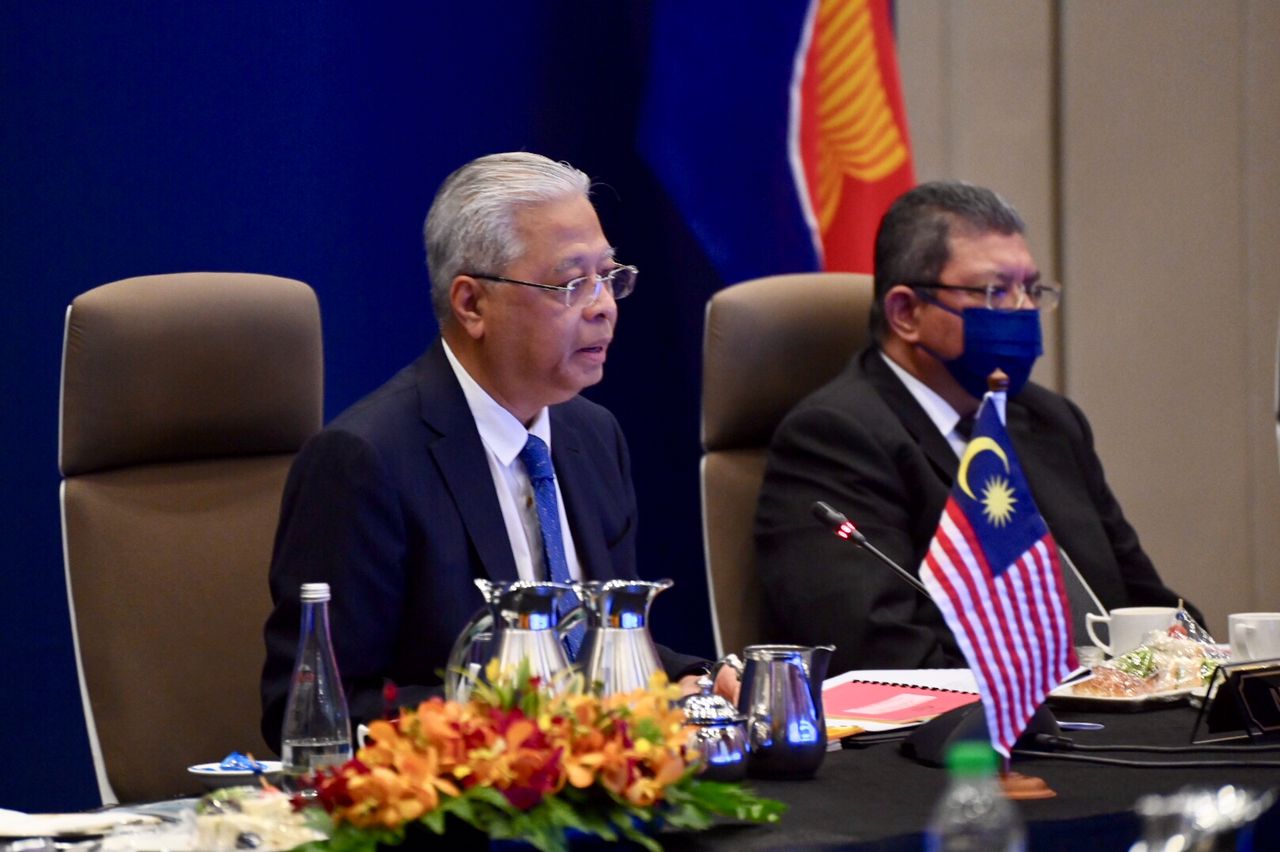KUALA LUMPUR, Nov 22 (NNN-Bernama) — Malaysia is of the view that the Association of Southeast Asian Nations (ASEAN) and China should work together in the fields of economy, transformation and infrastructure as well as connectivity to ensure the supply chain remains unimpeded and can continue to grow in terms of economic recovery post-COVID-19 pandemic.
Prime Minister Ismail Sabri Yaakob said the implementation of the Regional Comprehensive Economic Partnership (RCEP) and the comprehensive ASEAN-China free trade agreement could also contribute to accelerating regional recovery and resilience.
“Malaysia also encourages ASEAN and China to work together in the field of public health and pharmaceutical capabilities through the sharing of technology, expertise and intellectual property,” he told a news conference on the outcome of the ASEAN-China Special Summit to commemorate the 30th anniversary of the ASEAN-China Dialogue Relations, held virtually on Monday.
The statement was delivered through Foreign Minister Saifuddin Abdullah.
The summit was co-chaired by the Sultan of Brunei Darussalam, Sultan Hassanal Bolkiah and China’s President Xi Jinping.
Meanwhile, when asked about Malaysia’s latest position on the Belt and Road Initiative (BRI) with China, Saifuddin said Malaysia still holds the same standpoint despite being under different governments.
“Probably with different intensity on certain projects. But Malaysia as a whole has always been supportive of the BRI, be it under the Barisan Nasional government, Pakatan Harapan government, Perikatan Nasional government and the current government,” he said.
Meanwhile in a joint statement by the ASEAN-China special summit, it reaffirmed the commitment to the open, free, inclusive, transparent, and non-discriminatory rules-based multilateral trading system with the World Trade Organisation (WTO) at its core, and its readiness to make economic globalisation more open, inclusive, balanced and beneficial to all.
It also welcomes the entry into force of the RCEP Agreement on Jan 1, 2022 and will work together to deliver benefits to businesses and people in the region.
“Efforts will be made to effectively implement the ASEAN-China Free Trade Agreement (ACFTA), and the remaining elements in the Future Work Program under the ACFTA Upgrading Protocol and to also expeditiously conduct a joint feasibility study to identify other areas for possible inclusion in further enhancing the ACFTA,” it said.
This, it said, included by creating more trade opportunities in digital economy and fostering new sources of growth for cooperation, working towards a more inclusive, modern, comprehensive and mutually beneficial ASEAN-China Free Trade Area.
Besides, it will step up the implementation of the ASEAN-China Joint Statement on Synergising the Master Plan on ASEAN Connectivity (MPAC) 2025 and BRI in carrying out mutually beneficial and high-quality cooperation, and encourage support from financial institutions, including the Asian Infrastructure Investment Bank, to achieve the goal of high-standard, people-oriented, people-centred, and sustainable development.
It said it would explore synergies between the ASEAN Digital Masterplan 2025 and the Initiative on Building ASEAN-China Partnership on Digital Economy and its Action Plan and enhance cooperation in digital economy, smart city development, artificial intelligence, e-commerce, big data, 5G use cases, digital transformation, and cyber and data security while embracing the Fourth Industrial Revolution (4IR).
It will also foster new impetus for cooperation through jointly formulating and implementing the ASEAN-China Plan of Action on a Closer Partnership of Science, Technology and Innovation for Future (2021-2025), explore cooperation on low-carbon, circular and green economy, sustainable development, and promote new cooperation on energy technologies as well as enhance marine ecosystem, among others.
— NNN-BERNAMA




